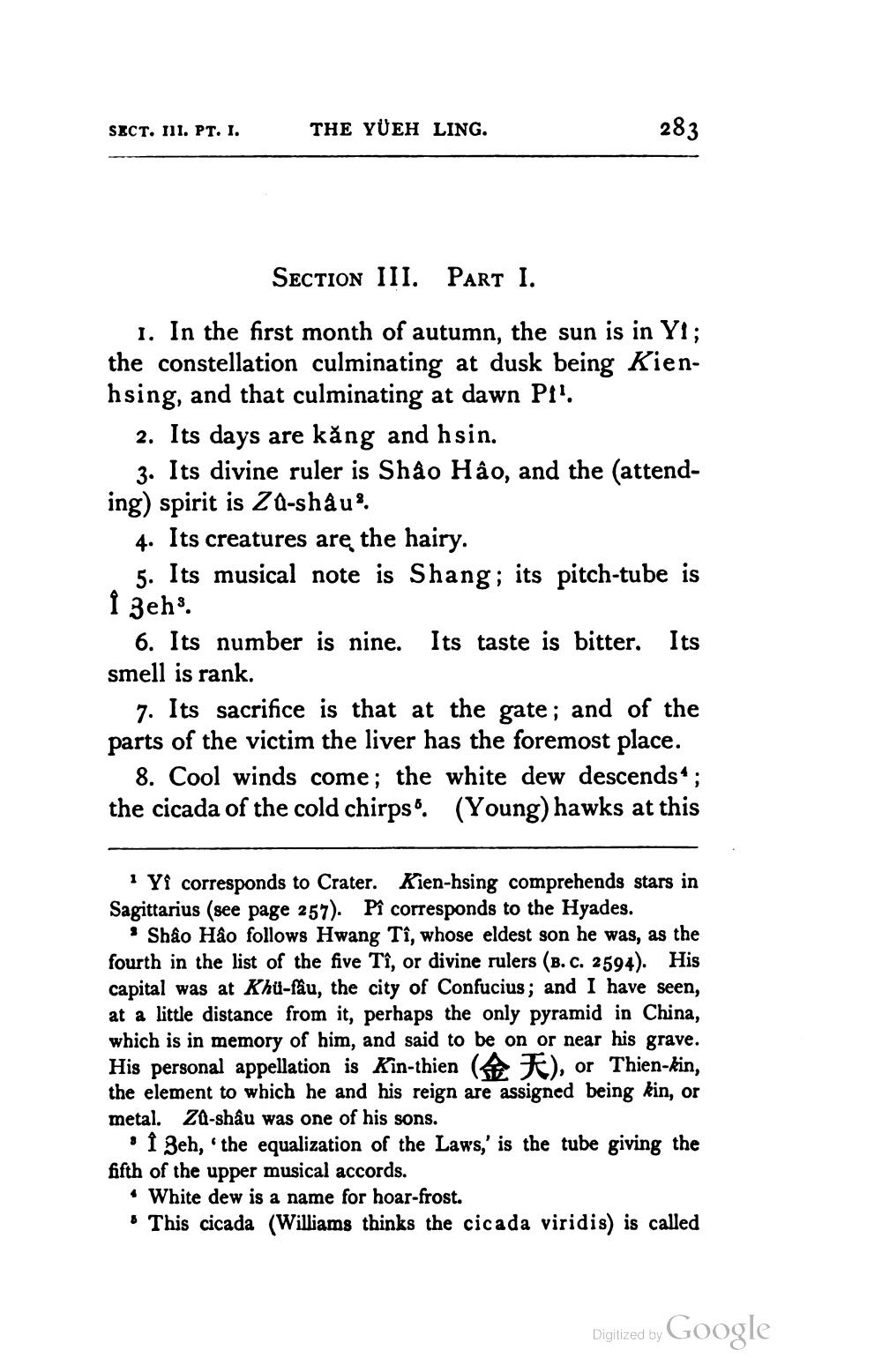________________
SECT. 111. PT. I.
THE YUEH LING.
283
SECTION III. PART I.
1. In the first month of autumn, the sun is in Yi; the constellation culminating at dusk being Kienhsing, and that culminating at dawn P↑1.
2. Its days are kǎng and hsin.
3. Its divine ruler is Shâo Hâo, and the (attending) spirit is Zu-shâu3.
4. Its creatures are the hairy.
5. Its musical note is Shang; its pitch-tube is Î 3eh3.
6. Its number is nine. Its taste is bitter. Its smell is rank.
7. Its sacrifice is that at the gate; and of the parts of the victim the liver has the foremost place.
8. Cool winds come; the white dew descends'; the cicada of the cold chirps". (Young) hawks at this
1 Yi corresponds to Crater. Kien-hsing comprehends stars in Sagittarius (see page 257). Pî corresponds to the Hyades.
Shao Hão follows Hwang Tî, whose eldest son he was, as the fourth in the list of the five Tî, or divine rulers (B. C. 2594). His capital was at Khü-fâu, the city of Confucius; and I have seen, at a little distance from it, perhaps the only pyramid in China, which is in memory of him, and said to be on or near his grave. His personal appellation is Kin-thien (), or Thien-kin, the element to which he and his reign are assigned being kin, or metal. Zu-shâu was one of his sons.
Î 3eh, 'the equalization of the Laws,' is the tube giving the fifth of the upper musical accords.
4 White dew is a name for hoar-frost.
This cicada (Williams thinks the cicada viridis) is called
Digitized by
Google




